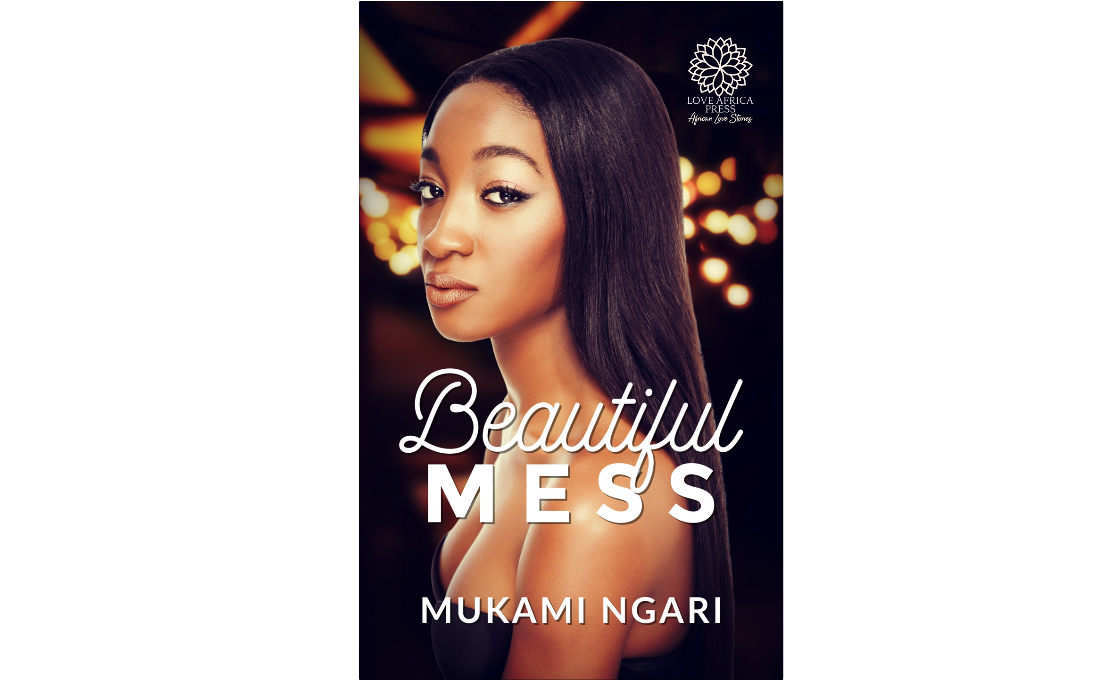

Set in Kenya, the novel centres on Makena and Daniel, whose love feels like a summer bonfire — bright, intense, maybe dangerous.
They meet by the ocean, their chemistry instant, but Makena will uncover a secret that changes everything: her father is responsible for the death of Daniel’s father. Can love survive when the very foundations are built on betrayal and blood?
What feels unique about Beautiful Mess is how the author blends sweeping romance tropes — love at first sight, forbidden love, class divides — with deeply local textures: Kenyan beaches, family expectations, social gaps, wealth and guilt. This is not a glittery fantasy romance, it is full of bruises and beauty. Makena, especially, is drawn with aching honesty. She doubts, she fights, she runs and she heals.
There is something raw in her self-awareness, as if she is learning to love herself and the world in the same breath. When she reflects, “Even to this day, I enjoy travelling. I find little pieces of God when I’m inside a moving car, looking out the window, watching the people and the trees move backwards. There is something about these moments that just factory-resets my mind,” you feel the deep yearning in her voice, the need to escape, to breathe, to find divinity in motion.
The author does not shy away from the shadows. The novel navigates grief, guilt and sexual assault with sensitivity and courage, refusing to let pain be ornamental. These themes are not inserted for shock value, they are explored with the emotional intelligence of someone who understands the complexity of healing. The author allows her characters to stumble through their trauma, to grieve in silence and to find fragments of strength in unexpected places.
The result is a narrative that feels deeply lived-in, where love and pain coexist rather than compete. The story thrives in these spaces between the loud and the silent, where hearts learn to speak even when words fail.
For Kenyan readers, Beautiful Mess is a rare kind of gift. In a literary scene where most new-adult romance lovers have had to rely on Wattpad stories — fun, sometimes brilliant, but often raw and unpolished — this author’s work arrives like rain after a long drought. It is homegrown, relatable and deeply professional.
Here is a Kenyan new-adult novel that feels fully realised: layered characters, clean structure, emotional depth and a voice that is unmistakably ours.
The author proves that the pulse of contemporary romance does not have to come from abroad; it can beat right here, in our own language, our own laughter, our own heartbreaks.
The story’s strength lies in its emotional honesty. Secrets are not treated as plot devices but as living burdens. Every revelation costs something. Makena’s growth, her slow, often painful becoming, feels earned. By the time she begins to take control of her own choices, you are not just reading, you are rooting for her.
The Kenyan setting enriches everything: salty air by the Coast, heavy silences in family homes, the collision between privilege and pain. The author writes with a cinematic eye, making every scene feel tangible.
Still, Beautiful Mess is not without its flaws. The pacing occasionally drags, especially midway through the story, when Makena’s inner conflict circles back on itself without much new ground.
Some secondary characters flicker in and out like background noise rather than fully realised people. The emotional core remains strong, but a sharper edit could have trimmed a few repetitive reflections and given more breath to Daniel’s own perspective.
Yet those imperfections do not dull the glow. If anything, they add to the texture, the beautiful messiness that the title promises. The novel dares to ask: Can love endure when truth threatens to destroy it? And while it does not offer easy answers, it makes the question itself feel sacred.
For readers who crave emotion that lingers long after the last page, this novel delivers. The chemistry between Makena and Daniel burns quietly but intensely, their relationship feels lived-in, imperfect, real. You do not just watch them fall in love, you feel the ache, the guilt, the beauty of it unfolding.
If you have ever believed that love stories can heal, that forgiveness is a kind of courage, and that beauty can rise from chaos, Beautiful Mess will speak to you. It is not a fairy tale, it is something rarer: a romance that remembers what it means to be human.


















